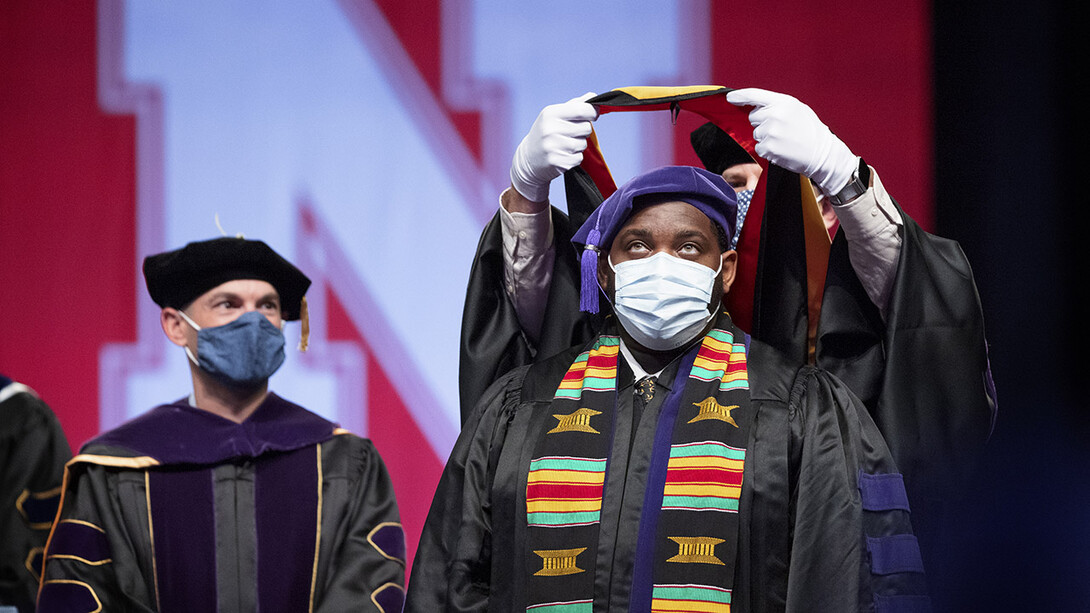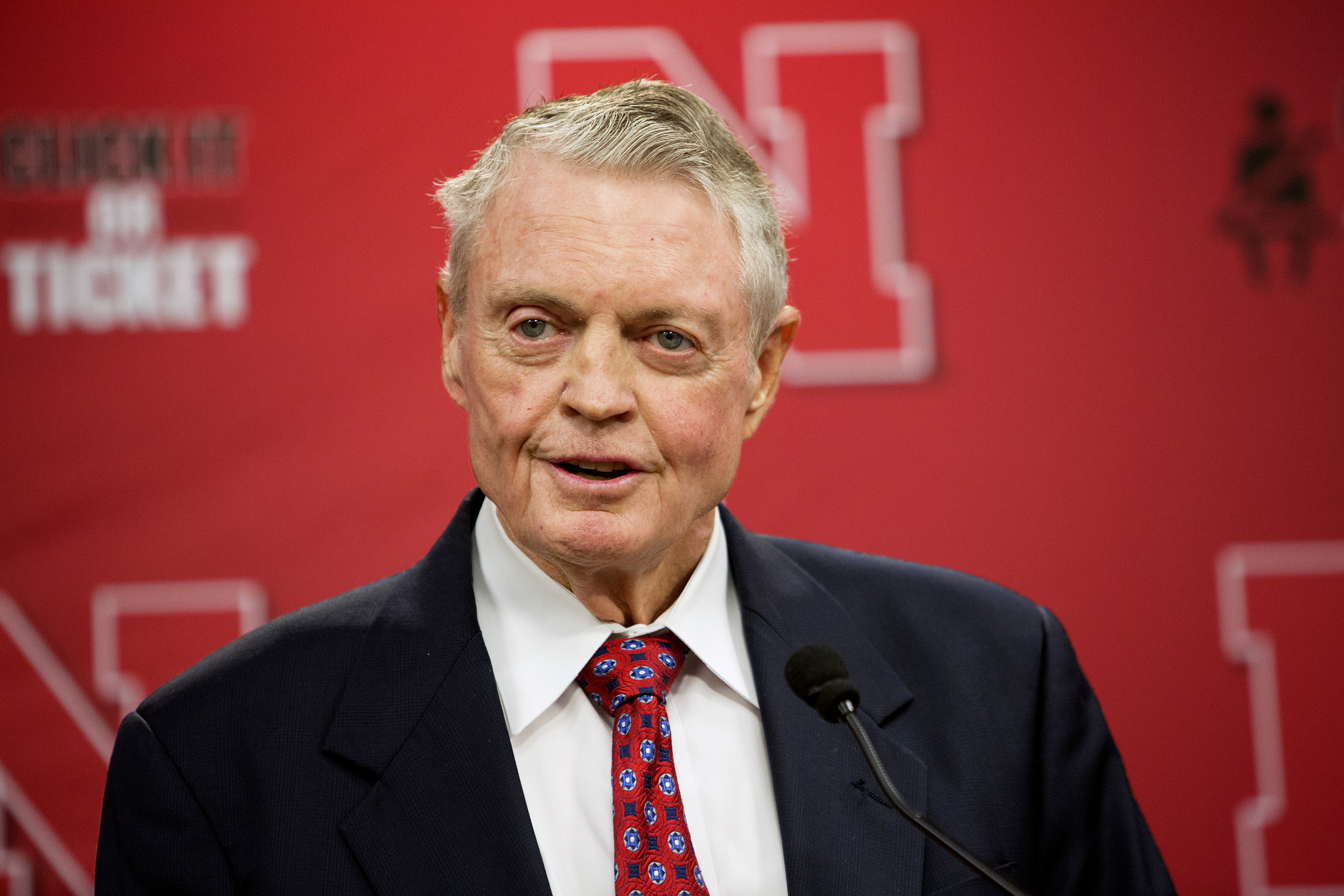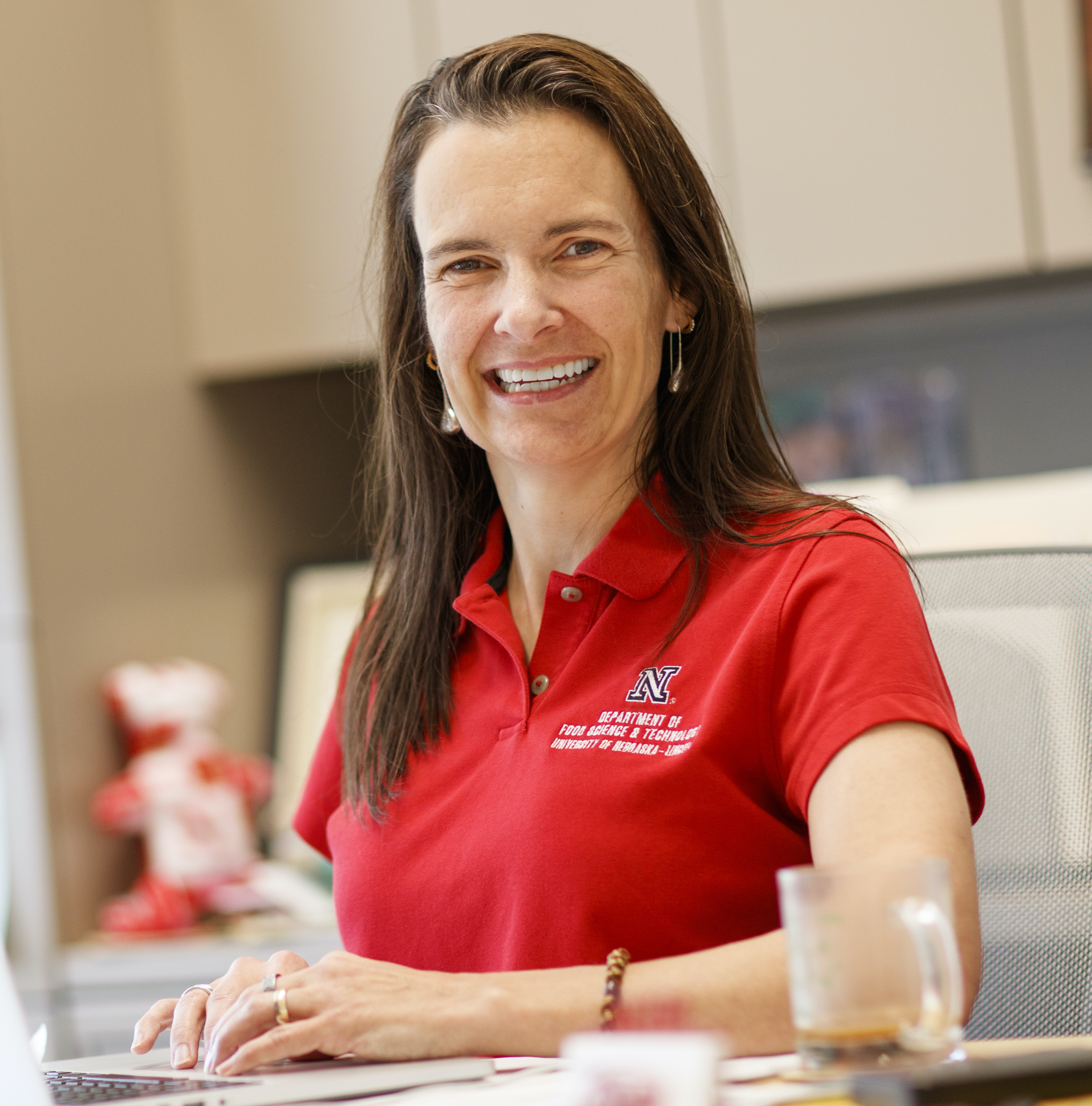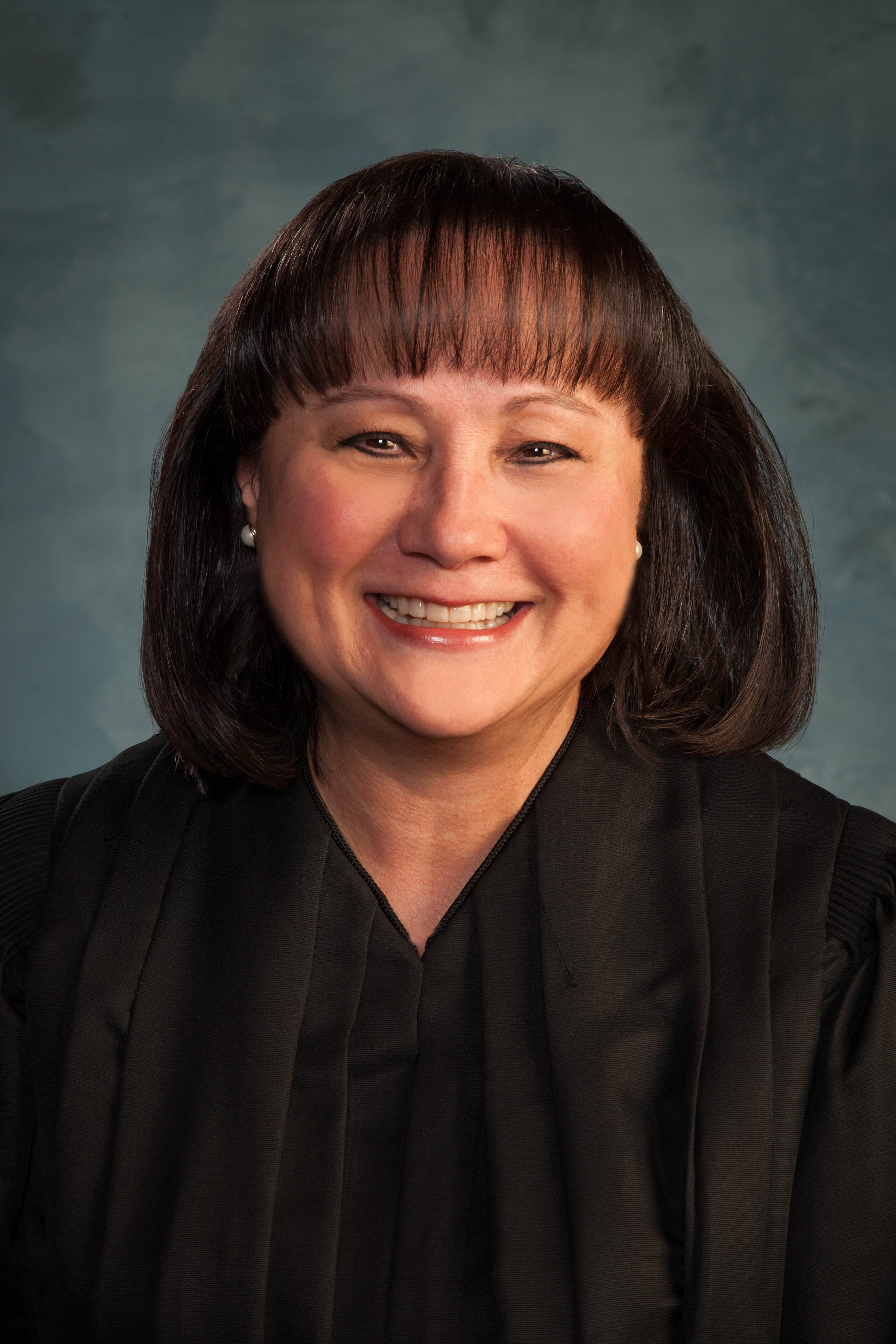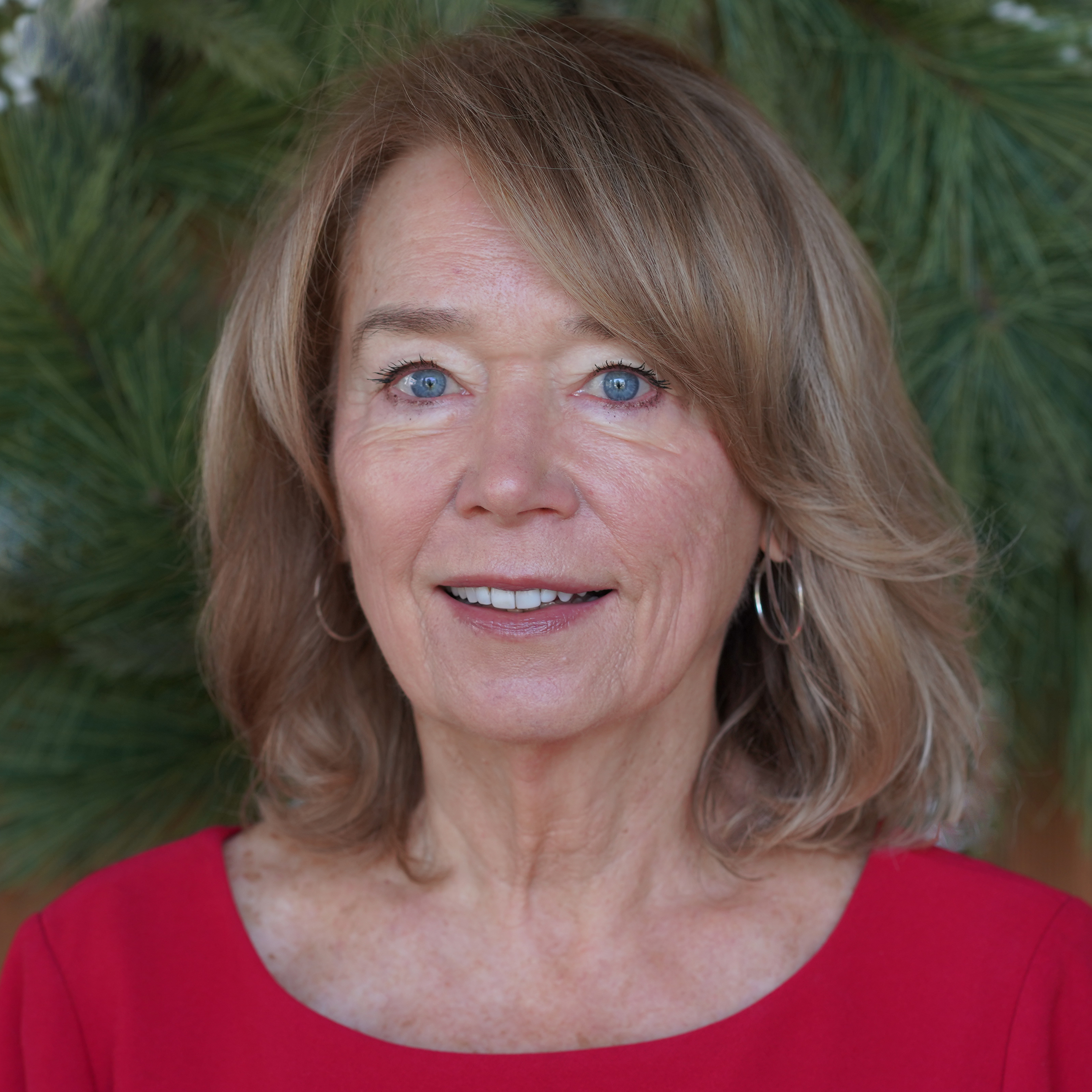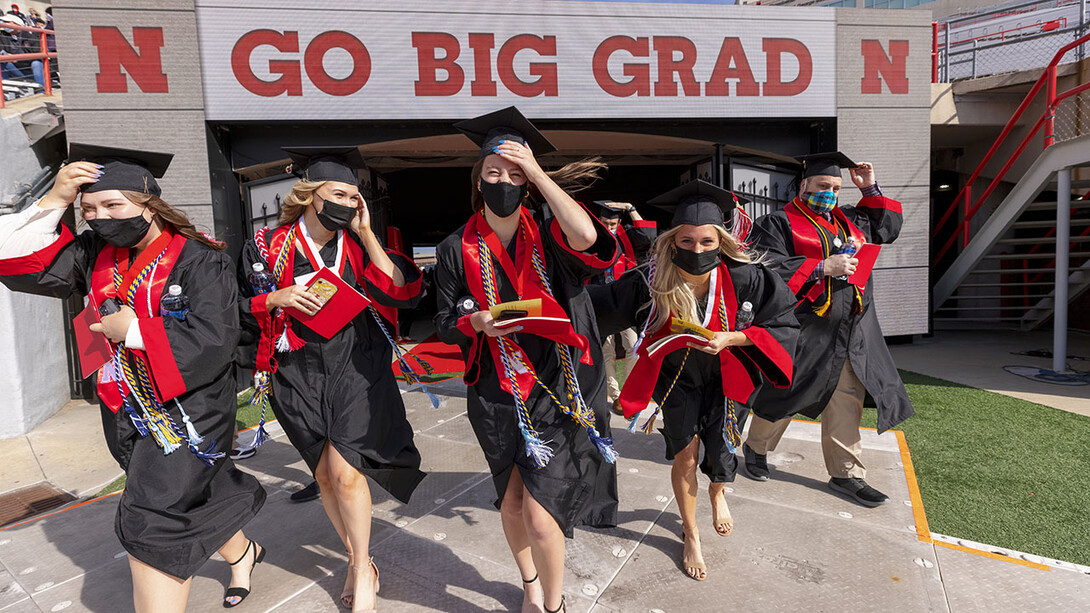
Tom Osborne told the University of Nebraska–Lincoln’s largest-ever graduating class to begin with the end in mind, find meaning and purpose through service and look at adversity as an opportunity.
Full list of graduates | Photos | Featured grads | Slides | Program
The former Nebraska football coach, athletic director and congressman delivered the keynote address, “Begin with the End in Mind,” during the undergraduate commencement ceremonies May 8 at Memorial Stadium.
Borrowing a habit from Stephen R. Covey’s best-seller “The 7 Habits of Highly Effective People,” Osborne told the May graduates to consider what family, friends and colleagues might say about them at the end of their lives. He also encouraged them to think ahead 40 or 50 years when choosing a spouse or accepting a job.
The Hall of Fame coach, who guided Nebraska to 13 conference titles and three national championships, mentioned a survey that was conducted a few years ago that found most people were generally happy but many did not consider their lives to have meaning. He pointed out that happiness — which is often about receiving or even taking — is transitory; but meaning and purpose — which have to do with service and sometimes sacrifice — are enduring.
Osborne talked extensively about Brook Berringer, the former Husker quarterback who is depicted with him in the statue north of Memorial Stadium. Berringer took over the starting role for injured teammate Tommie Frazier in 1994, winning eight games and helping lead Nebraska to a national championship. He narrowly lost the starting job to Frazier the next season.
Osborne said Berringer could have quit the team or “shut it down,” but he continued to prepare for every game, supported his teammates, visited schools and hospitals, replied to letters and signed autographs.
Berringer was killed in a plane crash just two days before the 1996 NFL Draft and shortly before he was to graduate and get married. Osborne recalled that five busloads of players traveled to Goodland, Kansas, for the funeral and that the roads were lined with people carrying signs and flowers.
Osborne said the reason Berringer is featured in the statue is that he had more impact on the team, fans and other people than any other player he coached.
“He served and sacrificed and I think, as a result, he made the greatest impact,” Osborne said. “And so the thing that I want to point out to you is that how you handle adversity is going to have a lot to do with what you end up with at the end of your life, because you can quit or you can blame or you can see it as an opportunity — an opportunity to learn something, an opportunity to get better.”
The university presented Connie Clifton Rath, president of the Clifton Foundation, with an honorary Doctor of Commerce during the morning undergraduate ceremony.
Chancellor Ronnie Green presided over the commencement exercises.
Green said he is immensely proud of what the 2020 and 2021 graduates have accomplished during the COVID-19 pandemic.
“Your perseverance through the greatest global health crisis in a hundred years is why we are here today,” he said. “Your resilience, your determination and your grit are certainly a part of what we celebrate in this academic milestone in your lives.”
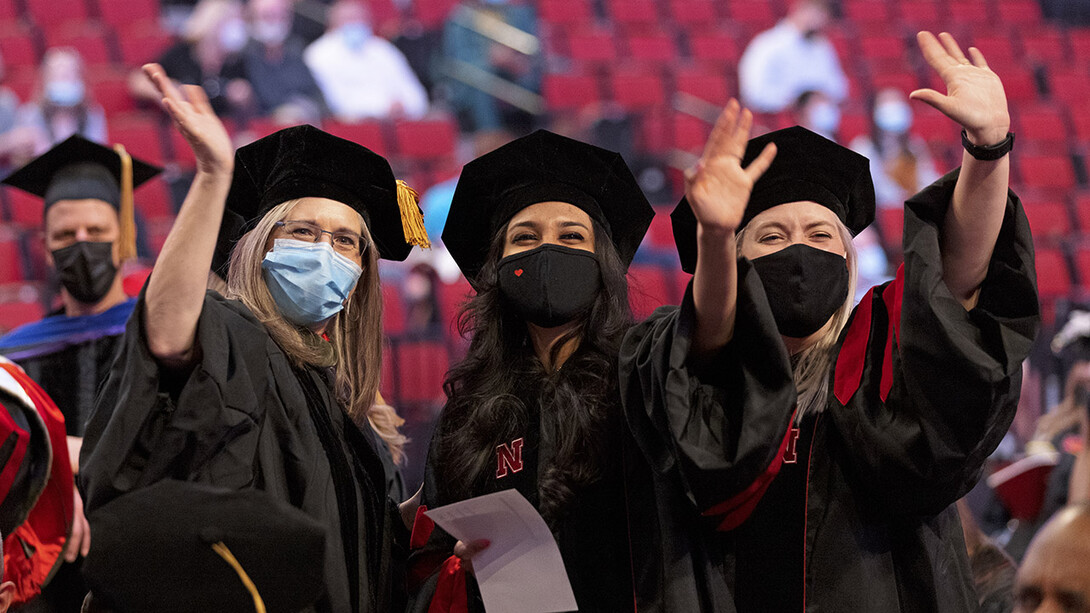
The ceremonies were the university’s first in-person graduation celebrations since December 2019 — before the start of the pandemic. To ensure the safety of graduates and their guests, face coverings were required in the commencement venues; seating was socially distanced; and all participating faculty, staff, volunteers and graduates had to test negative for COVID-19 in the days leading up to the ceremonies.
Jennifer Clarke, professor of food science and technology, and statistics, and director of the Quantitative Life Sciences Initiative at Nebraska, gave the address at the graduate and professional degrees ceremony May 7 at Pinnacle Bank Arena. Riko Bishop, a judge of the Nebraska Court of Appeals, spoke to the law graduates May 7 at the arena.
The university conferred a record 3,594 degrees during the May commencement ceremonies. The 3,512 graduates are from 58 countries, 43 states and the District of Columbia, and more than 250 Nebraska communities.
The May graduating class earned 106 new Juris Doctor degrees, 561 other new graduate and professional degrees and 2,927 new baccalaureate degrees. The university has awarded 304,968 degrees since it was founded in 1869.
